This article was reviewed by Steve Snedeker, professional landscaper.
Figuring out the best way to get rid of a pesky garden weed can sometimes feel endless. Do you have poison ivy growing throughout your yard and need a quick solution? Can you use mulch to kill poison ivy plants? How do you do this?
Luckily, we have extensively researched these questions and have the answers for you!
Yes! Using mulch is one way to kill poison ivy vines or shrubs growing in your garden. Usually, this species will die off if you apply a thick layer of mulch around its base/center, so that's our recommendation.
However, you can't solely rely on mulching to kill all poison ivy plants, so make sure you mow or trim them. If you follow this regimen, your weeds should be gone in the next few weeks-month!
As we start this post, we will cover poison ivy and discuss how to use mulch to kill it. Whether you have pesky weeds all over your garden or need a new way to handle one that keeps coming back, we're here to help. With that said, let's dive right into this topic below!
Can I Use Mulch To Kill Poison Ivy?
You can certainly try spreading mulch over poison ivy plants in your garden. As we said, this isn't usually a one-and-done remedy; you'll also need some trimming/mowing.
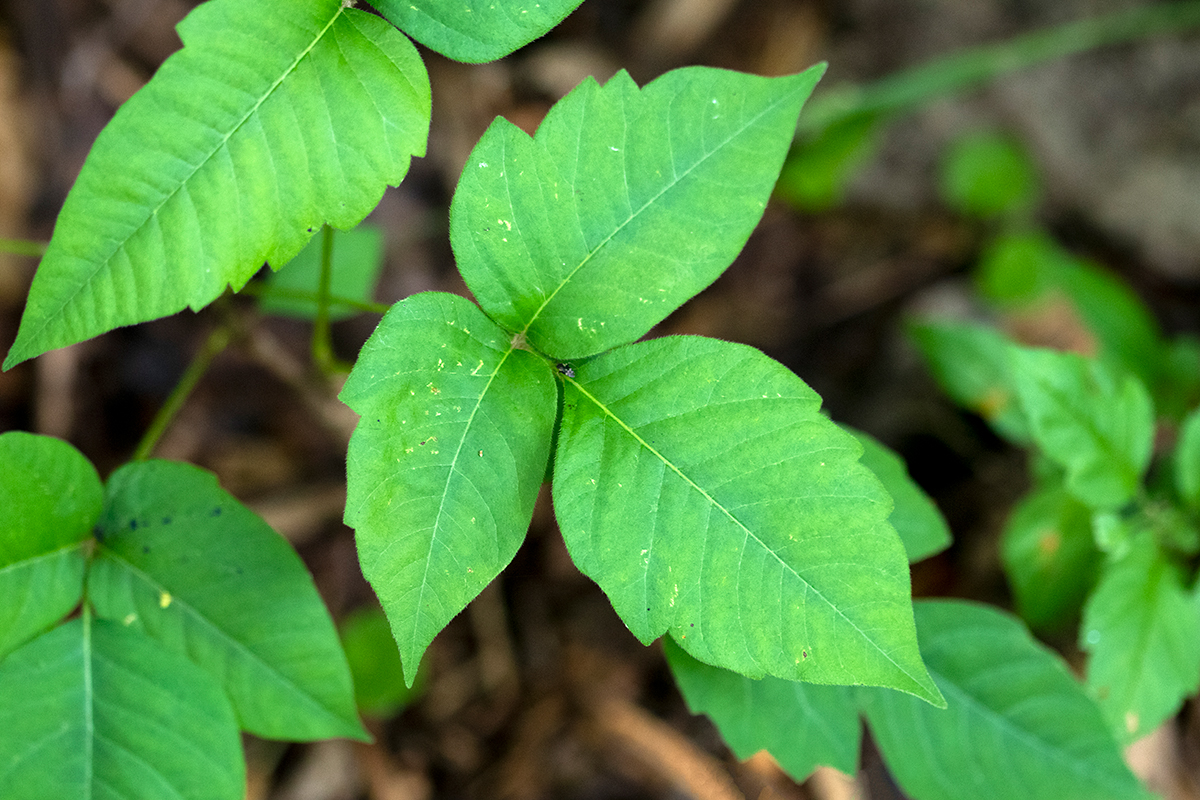
It's better to create a treatment plan for the weeds in your yard. Whether poison ivy or not, weeds are incredibly resilient and can spread if you aren't proactive.
Furthermore, the mulch you apply to the poison ivy needs to be thick and full coverage, so it can essentially "drown out" the weed.
Many experts recommend sheet mulching your garden to kill and prevent weeds, which is worth exploring. A nice benefit of adding mulch to the soil where poison ivy typically grows is that it can also work to prevent it from returning.
So, if you want to kill and block future poison ivy plants from making your property their home: use some mulch!
Does Poison Ivy Grow In Mulch?
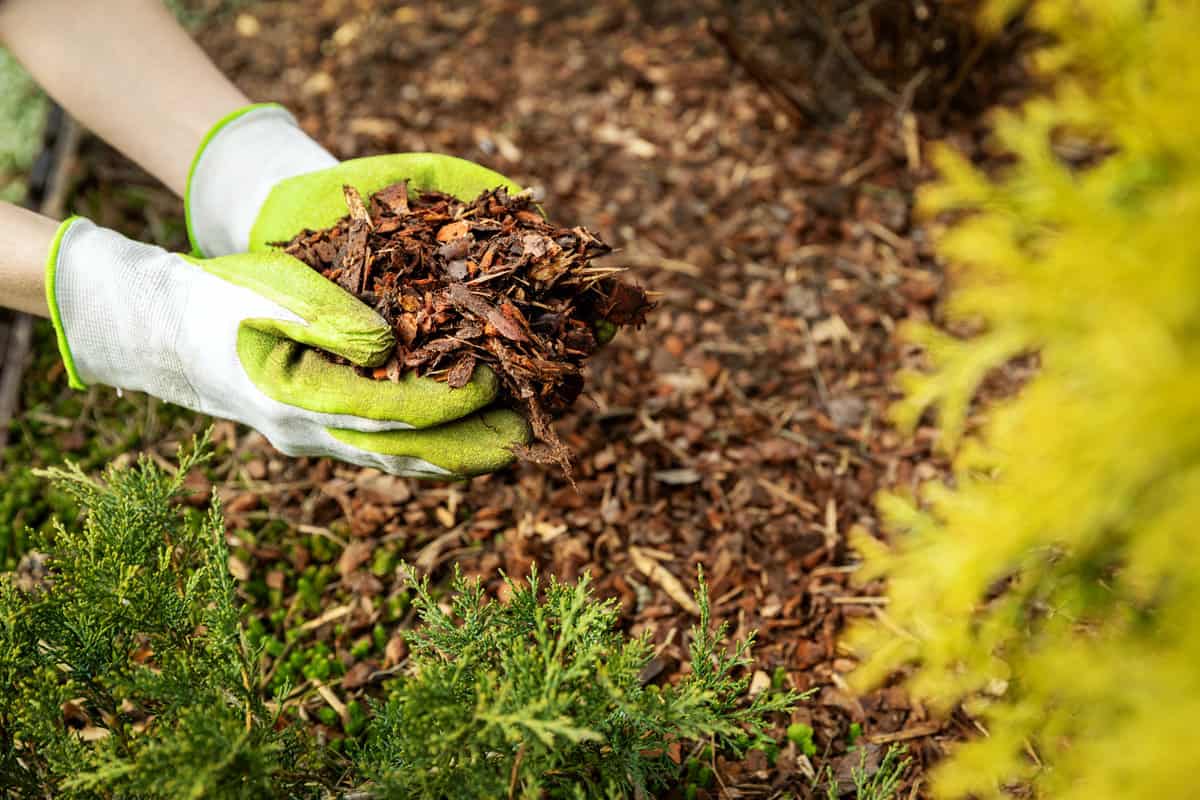
Although poison ivy can grow in light/poor coverage mulching, this isn't too common. As we said above, mulch blocks the sun and other nutrients from reaching weeds.
Therefore, smothering poison ivy in it shouldn't be attractive or comfortable to your weeds. In contrast, doing this should cause the ivy plants to become less resistant to your other pruning and mowing, hence why we recommend using some.
However, if your garden has old mulch or you use a thin layer, this is when weeds like poison ivy can still make their way to the surface.
Even though weeds don't feel like typical plants, they need sunlight, water, and soil nutrients to grow. So, to kill one, you need to cut your plant off from these necessary factors.
On top of that, experts at Michigan State University claim that poison ivy plants can grow alongside your other non-weed species and try to escape your killing efforts.
What Is The Best Way To Kill Poison Ivy Using Mulch?
Creating a multi-step plan is one of the best ways to kill poison ivy using mulch successfully. As we mentioned, you want to smother the weeds with a thick mulching layer.
Furthermore, you must trim them down and mow over them if they're persistent. Remember, a weed is incredibly resistant to your efforts, so you can't back down once things start improving.
According to Hobby Farms, you want to "pile" the mulching over your poison ivy. Doing this will prevent the sun from reaching your ivy, stripping it of those nutrients.
On top of mowing or routine pruning, that can help get your ivy dead and gone for good. So, this will take time, patience, and a multi-faceted program to eliminate poison ivy indefinitely.
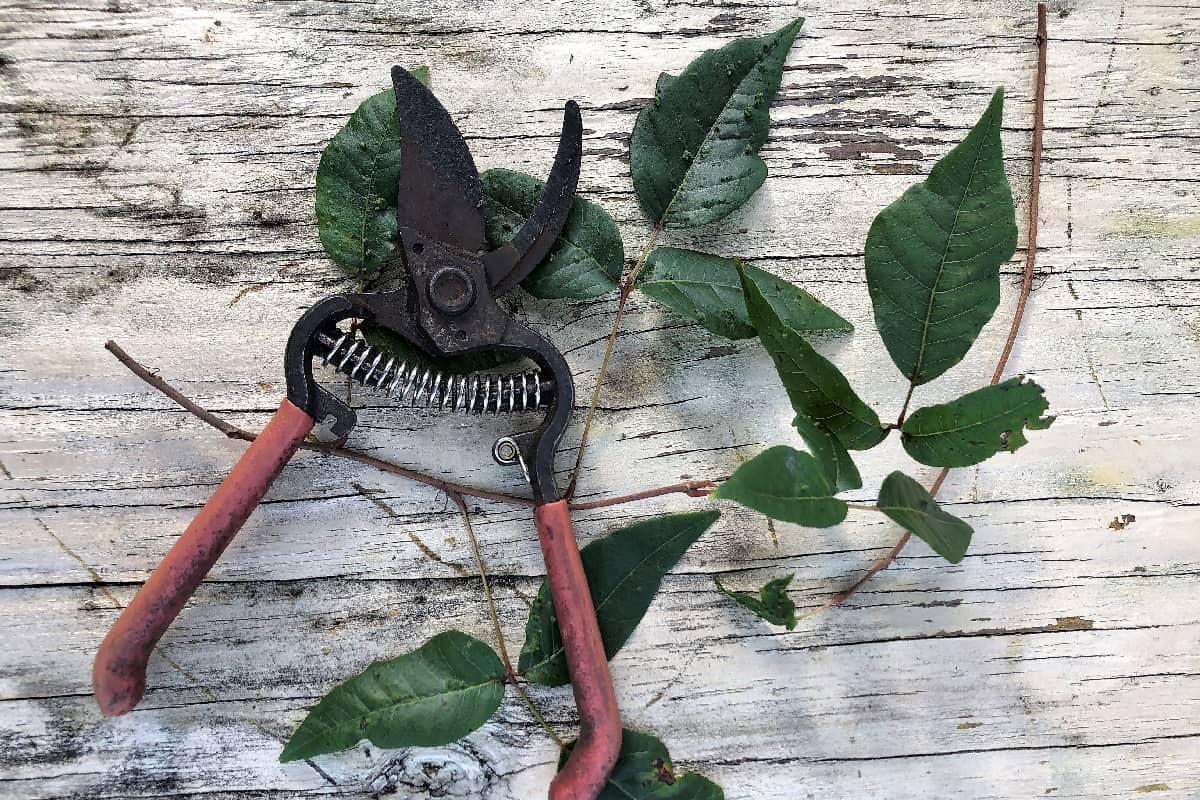
What Is The Fastest Way To Kill Poison Ivy?
When it comes to the fastest poison ivy killer, there are a few ideas to consider. Although mulching is a great way to kill and repel ivy weeds systematically, you sometimes need to take a more aggressive approach.
Specifically, you can try adding glyphosate to the soil around your poison ivy plant. This is an effective killer and works to kill your weed within the next few days.
The University of Georgia states that using glyphosate on poison ivy on a bright, warm day is the best way to kill it permanently. They stress that you want to use this as your poison ivy is actively growing, so keep that in mind.
In addition, you might want to pour boiling water over your ivy, as this can stun and kill it. Especially if you have mulch over your plant, adding scolding hot water every week can kill your weeds at the root, which will eliminate them faster.
How Do I Get Rid Of Poison Ivy In One Day?
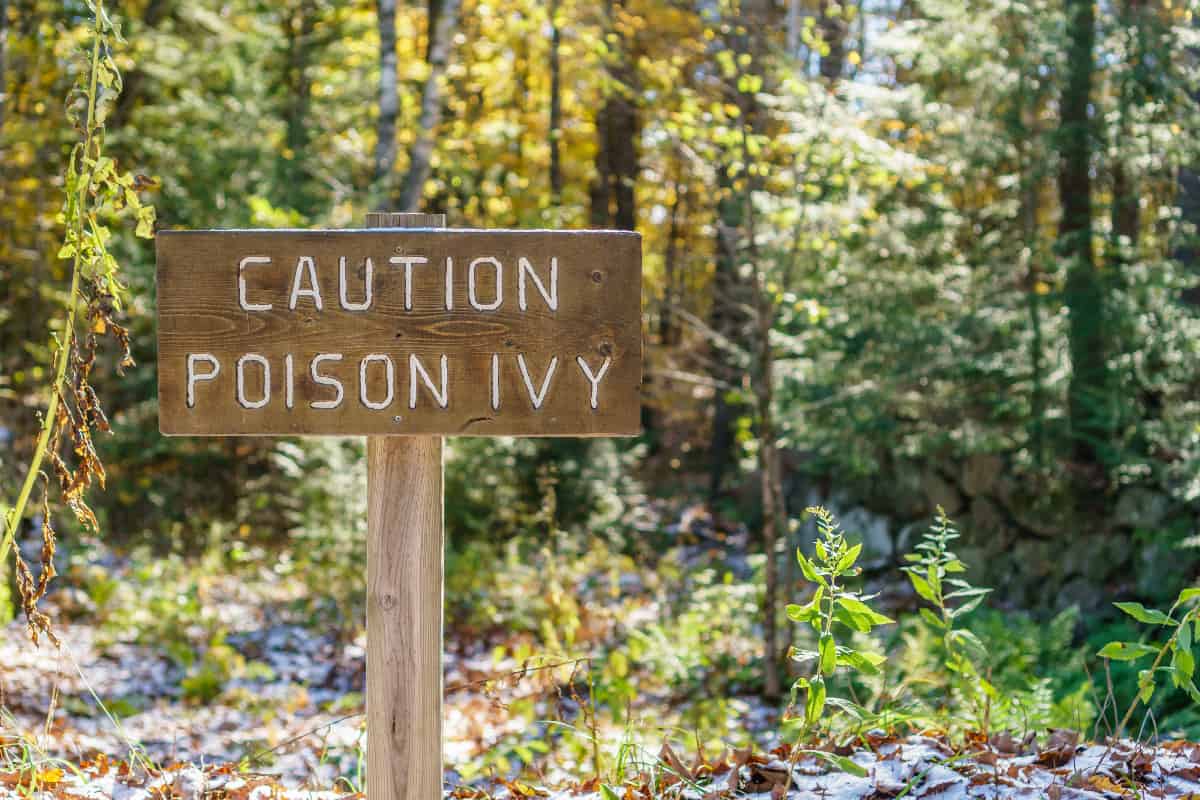
For anyone wanting to eliminate poison ivy in a single day, there are ways you might be able to do this. According to garden experts, combine one cup of salt and one gallon of vinegar in a pot.
Heat this mixture to dissolve the salt, and then pour the scolding mix onto your poison ivy. This mixture should prove lethal for your weed, ultimately killing it by the following day.
Salt and vinegar tend to ravish through the roots of a plant, so creating a hot mixture of the two for ivy is a great way to eliminate it quickly.
However, this may not be a permanent solution to your weed problem, but it does work very fast.
In addition, you might want to pour your mix into a spray bottle and cover your ivy in it that way, so there are a couple of different application methods.
How Do You Kill Large Amounts Of Poison Ivy?
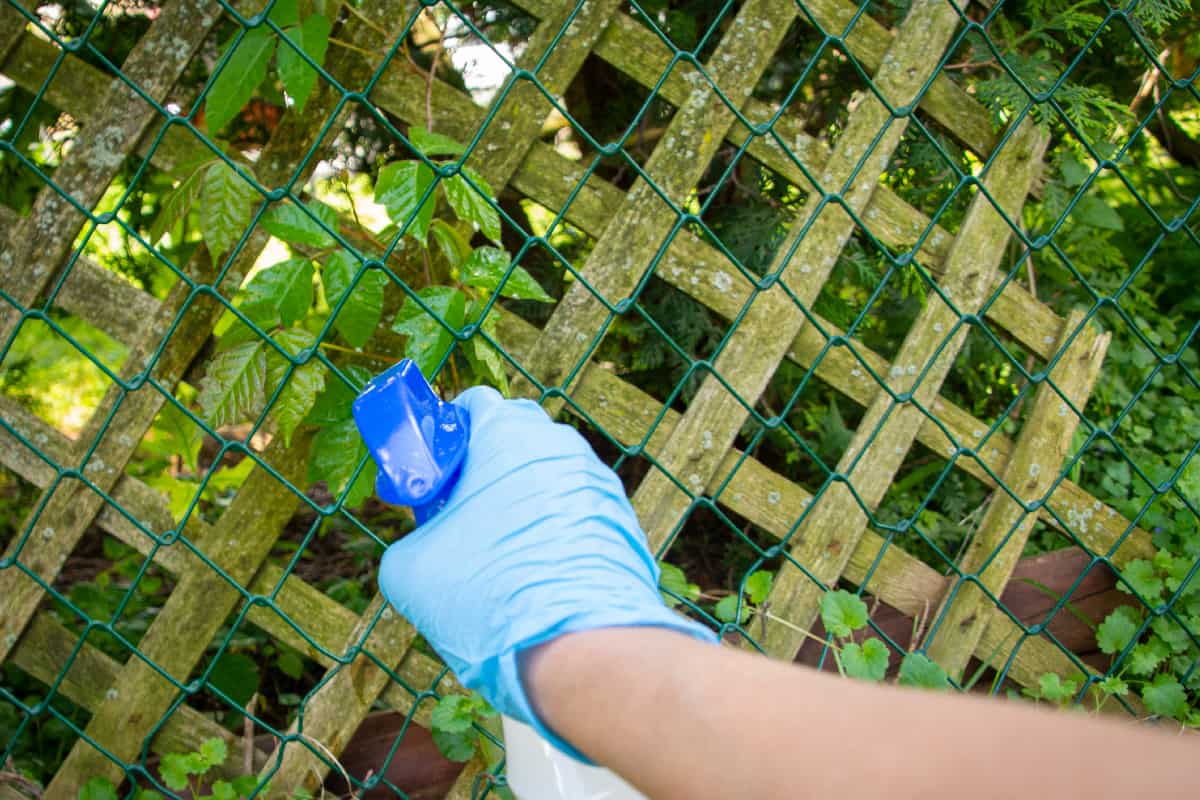
If you are struggling with a larger-scale poison ivy problem, you want to depend on herbicides or large quantities of homemade mixtures.
As we said earlier, you can try adding glyphosate to the growing ivy plant, which should kill it over the next few days. Additionally, you can mix vinegar, salt, and water to create a toxic solution for your plant, which is a fast and natural alternative.
However, you can rely on herbicides if you don't want to do much prep yourself. Generally, you want to purchase a product with glyphosate, amitrole, 2,4 D, and triclopyr.
That said, poison ivy is incredibly resilient to many of these ingredients. According to experts, your ivy could come back after you use any of these options to kill it, so this takes long-term action.
One commercial herbicide 'Roundup®' is commonly used for killing and preventing poison ivy, although you need to use it to solve the weed problem continually.
So, even if your herbicide or mixture kills the weed in a day or week, you need to monitor the site closely so new ivy plants don't emerge.
Roundup Concentrate Poison Ivy Killer
This poison ivy killer has a highly concentrated formula, promises results in 24 hours, kills over 200 types of weeds, is rainproof within 30 minutes, is easy to use and apply, and comes in a 32-ounce bottle.


Follow this link to view it on Amazon.
What's Better For Killing Poison Ivy: Mulch Or Herbicides?
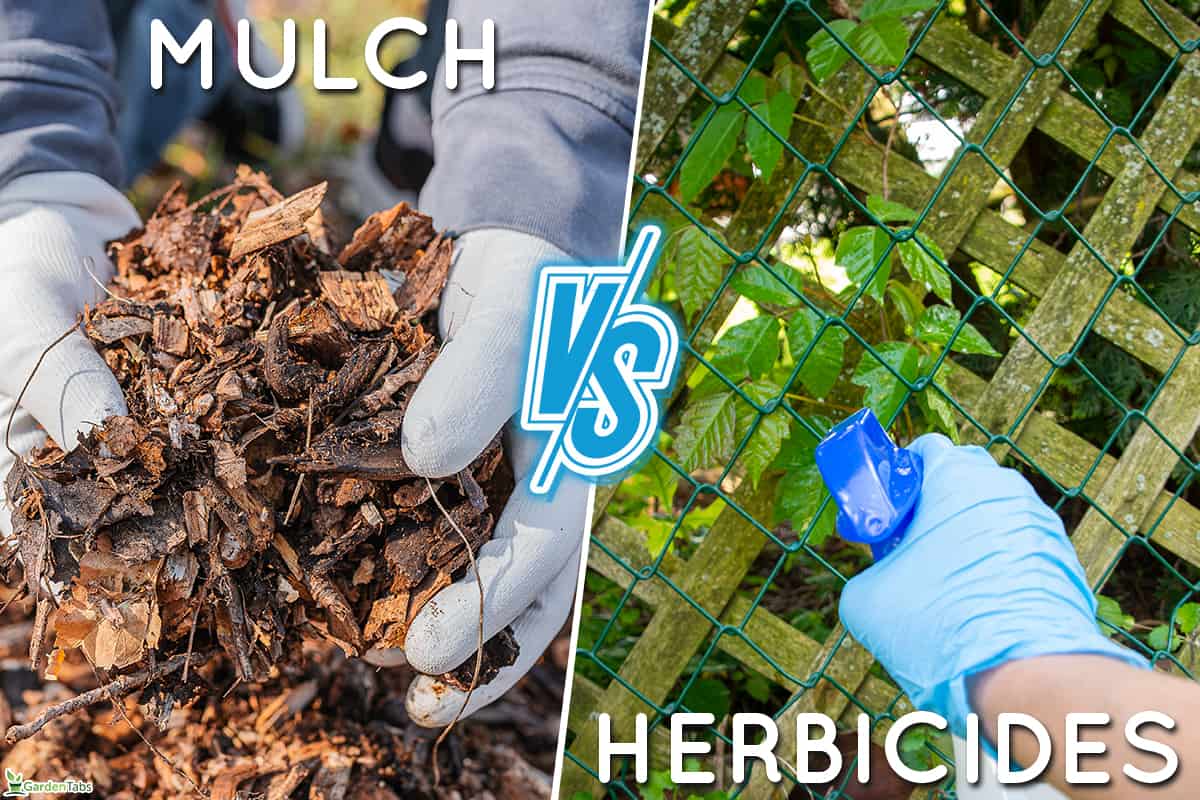
Between using mulch or herbicides to kill poison ivy: why not try both? Although mulching and herbicides can be highly effective on their own, it can't hurt to combine your efforts.
As we covered earlier, a multi-step plan is the best way to eliminate and prevent poison ivy from returning. Therefore, spraying an herbicide and using thick mulch to kill and keep your garden weed-free is a great idea.
You can often apply herbicides over your mulch, and it will still reach the ivy's roots below. So, you don't have to clear your mulching to use a chemical product, which makes your job easier.
Furthermore, you can also try using your herbicide every few months around your yard to prevent ivy from popping up, even if there isn't a current problem.
The strange thing about weeds is that they pop up when you least expect them to.
Can You Get Poison Ivy From Touching Mulch Nearby?
Yes. It is technically possible to get poison ivy symptoms after touching mulching nearby. In general, poison ivy can transfer particles to the ground nearby, which can become an issue if you actively clear the area.
For example, if your poison ivy shrub or vine sheds particles onto the mulching around it: you could develop a rash if you touch the plant or the affected wood.
So, this can become tricky for landscapers and everyday gardeners trying to improve their gardens and remove weeds. We recommend wearing gloves while dealing with poison ivy, as it can be highly irritating to your skin and other body parts.
A common problem with poison ivy is people accidentally touching their eyes or mouth while the particles are still on their hands, ultimately giving them an even worse rash.
So be careful, wear gloves, and wash your hands and arms before resuming daily activities!
To Wrap It Up
Whether you have poison ivy all over your landscape or notice it forming in one section, creating a game plan is essential. From what we found, mulch can kill poison ivy. However, you must apply a thick layer to your weed, mixed with trimming and mowing.
Poison ivy can come back even after you kill it, so this takes patience. As we said, you will likely need to target the affected area and continue to treat it to keep the weeds away.
Also, remember to be cautious of touching your face after treating poison ivy: wear gloves if possible!
Made it to the end? Check out these helpful related garden articles below:
19 Weeds That Look Like Grass [And How To Get Rid Of Them]
Does Mulching Cause Thatch And Spread Weeds?
![Will Mulch Kill Poison Ivy? [Yes! Here's How!]](https://gardentabs.com/wp-content/uploads/2024/02/Will-Mulch-Kill-Poison-Ivy-Yes-Heres-How.jpg)
